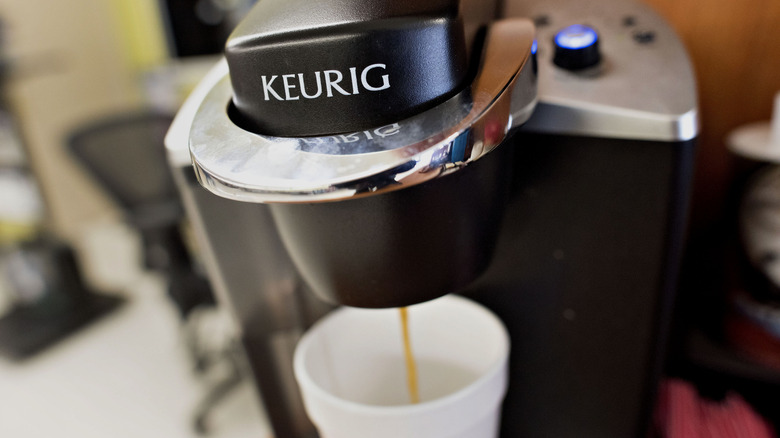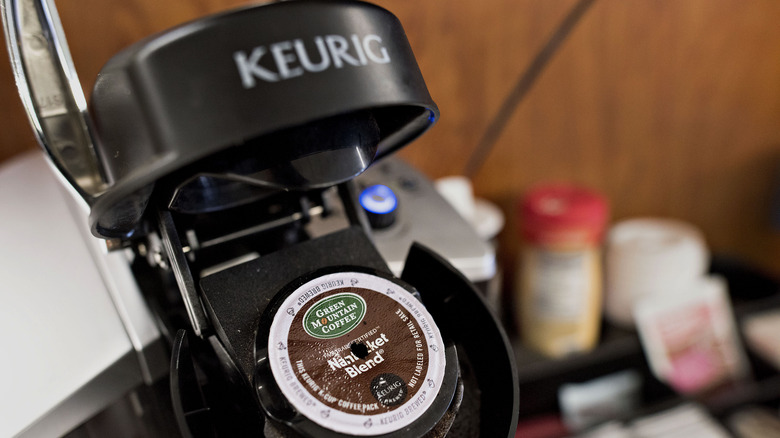The Type Of Water Keurig Recommends For Cleaning And Brewing
From professional-grade espresso machines to $10 beater pots from the thrift shop (fire hazard not sold separately), proper appliance maintenance is crucial to preserving the functionality and longevity of your coffee machine. Your daily caffeine habit will thank you for the extra effort.
According to a 2023 study by the National Coffee Association, 28% of all regular U.S. coffee drinkers use single-cup brewers like Keurigs. If making a cuppa joe is part of your sacred morning ritual, keep it that way by ensuring your beloved bevy is as fresh and tasty as possible. Here at Tasting Table, we're all about scouting out those artisanal beans and tea leaves from your local brewers and growers. But, believe it or not, those beautiful, aromatic products only account for 2% of your finished cup. Coffee and tea are roughly 98% water. In the same way that bad-tasting water makes for bad-tasting ice cubes, don't slug just any H2O into your coffee maker and expect your coffee to taste fine.
For brewing and cleaning, Keurig says to stick to bottled water or spring water to create the best tasting coffee. Steer clear of softened or distilled water. According to the company, the biggest concern for keeping your machine in the best condition is that some types of water carry a high concentration of naturally occurring minerals like magnesium, calcium, sodium, potassium, bicarbonate, sulfate, and chloride. Not only does this mess with the coffee's taste but it also deposits these minerals inside your Keurig and shortens the life of your equipment.
High quality for low maintenance
Especially if you use your Keurig every single day, its interior mechanisms can develop clogs and otherwise quickly accumulate general gunky-ness. To properly run a cleaning cycle, simply fill your Keurig's reservoir with bottled or spring water and run it through without inserting a K-cup. Run as many cycles as it takes to empty the reservoir. Just be sure to put a bowl or other large container beneath the spout to catch all the hot water as it dispenses. (Also, the first step for cleaning your machine should always be to unplug it.) You can disassemble the removable parts of your Keurig and wash these in regular hot water with soap.
To help remove any buildup inside the machine during your proper deep-clean, you can also toss some white distilled vinegar or commercial descaling solution into the mix. Keurig makes a name-brand approved de-scaler which can be purchased for $13.99 via the official website, and recommends doing a proper machine descale every three to six months. If you're going this route, the type of water you choose for cleaning probably matters less. But, when it comes to regular brewing, opting for spring or bottled water is well worth the extra effort and planning ahead at the grocery store. At a Walmart in New York, a gallon jug of Great Value spring water runs $1.34. That's enough for 16 8-ounce cups of coffee, coming out to roughly $0.08 per cup.

